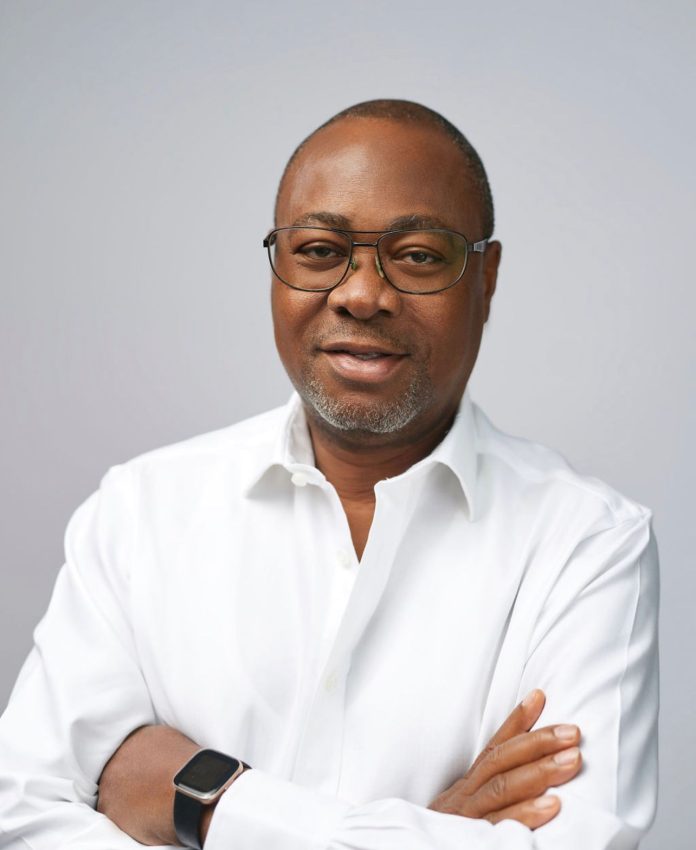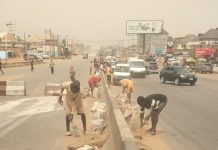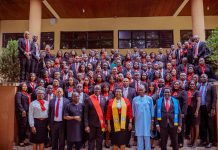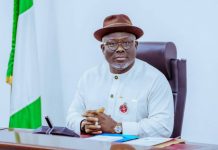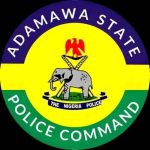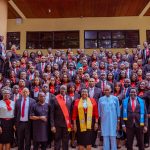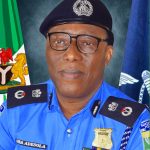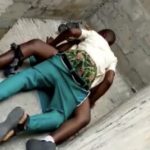By Sylvester Monye
The recent revival of the demand for the creation of Anioma State, essentially driven by Senator Ned Nwoko, is in keeping with the aspiration of our people. The demand for the creation of Anioma state has been long-standing and must rank as one of the oldest agitations in the political history of Nigeria. Political detractors would want you to believe that Senator Nwoko’s interest in the Anioma State movement is just for his politics. Nothing could be farther from the truth.
The agitation has always been driven by the Anioma people who are of Igbo descent and reside in the northern part of Delta State. The Anioma people, though located in Delta State, share a distinct Igbo cultural identity that is remarkably different from the Urhobo and Itsekiri ethnic groups in the state. This distinctive demand has enjoyed the support of all well-meaning persons in that enclave. The very term, Anioma, coined by the illustrious Chief (Dr) Dennis Osadebay as far back as 1951, has remained the unchanging acronym by which this area has been identified.
So, the inspired poet and politician, the only Premier of the defunct
Mid-West Region, Dennis Osadebay, was the uncontestable founding father of the Anioma state movement. Down the decades since then, Anioma people have remained wedded to this ideal that has remained Osadebay’s greatest bequest to his people as they struggle to find a befitting foothold in the Nigerian commonwealth as well as a plank on which to build a fast and stable development that should show other African peoples the way to follow.
Here, one remembers with nostalgia, the role played by proud Anioma sons and daughters in the early 1980s. Of particular note was the late Chief Sony Odogwu (Ide Ahaba) and Chief (Hon) Willy Ikolodo (Uwolo of Ibusa) dual leadership of the Bendel East Cultural Association (BECA),
the activism of Dr. Amadi Emina, Sen. Nosike Ikpo, Ambassador Raph Uwechue, Chief Andrew Monye, Mr. I. S. Moemeke, Chief Philip Asiodu, Professor B. I. C. Ijeoma, Ambassador Orewa and
Professor Onianwa, just to mention but a few. Creating Anioma State
would provide the Anioma people with a unique platform to preserve,
promote, and develop their cultural heritage. The recognition of
Anioma as a distinct political entity would fulfill their aspirations
for self-determination and ensure their traditions and values are
fully represented at a state level.
The case for creating Anioma State is grounded in several key arguments, which include cultural identity, equitable representation, administrative efficiency, and socio-economic development. There is a historical argument that Anioma lands were arbitrarily merged with non-Igbo regions during state creation exercises in Nigeria’s colonial and post-colonial eras. This administrative decision ignored the cultural and ethnic affinities of the Anioma people with the wider Igbo community. Rectifying this historical oversight would not only address a long-standing grievance but also reaffirm the Nigerian government’s commitment to justice and fairness.
Yet, commentators, including self-styled Anioma experts often failed to mention the lost parts of Anioma, which the British colonialists carved up and threw to different directions that should
be brought back to their Anioma family. So, Anioma state, when created should unify the entire Anioma people who were so dastardly punished by the British for the Ekumeku revolution that lasted all of 31 years—from 1883 to 1914.
By 1870, the crisis between Anioma and Britain had degenerated as the colonialists invaded Ndoni, an Anioma community now in Rivers state, to gain control of their market. The Royal Niger Company invaded Atani another Anioma community (now in Anambra state) in 1880; it was pure genocide. On November 2, 1897, Onicha-Ado (Onitsha) an Anioma community was bombarded. The following year, Ibusa felt the sting of
the British, in a surprise attack. The Ibusa forces retreated and the British was still savouring an easy victory when Ibusa counter-attacked in the first battle of the Ekumeku war. Writing in 1898, Father Zappa emphasized that rather than surrender, “the Ekwumekwu soldiers continued to resist as the Ibusa forces
reinforced.” The British Commander, Major Festings, appealed for reinforcement of troops from Lokoja to help subdue Ibusa.
On February 11, 1904, Owa (near Agbor), had to defend herself against the British. W. E. B. Crawford Coupland, the Divisional Commissioner ordered for 4 Connaught Rangers, 2.95 artillery and other weapons. Ekute provided military support to the Ekumeku soldiers. The Commander, Lt H. C. Moorhouse would later defend himself on why he sustained casualties; he said Owa had well-trained soldiers and their geographical knowledge was an advantage. Mr. S. O. Crewe lost his life in the battle. This has been rated as one of the fiercest resistances the Ekumeku warriors put up as the fight raged for weeks.
The battle of Ogwashi-Uku began on November 2, 1909 with a mandate to the British Forces to kill everybody on their way. Yet, the British invaders sustained 34 casualties, most notably Captain H. C. Chapman. In 1910, the British made Ogwashi the Asaba Division Headquarters (Nigeria’s first LGA Headquarters) and built a prison there to contain the Ekumeku insurgency. Ekumeku fighters rallied from Onicha-Ugbo, Onicha-Olona, Ubulu-Uku, Obomkpa, Idumuje and other towns to help Ogwashi in that battle. So the British deliberately balkanized Anioma; and Anioma territories such as Onicha-Ado and Oguta were permanently lost to the Easterners. Onitsha’s changed spelling disassociated it from their Onicha-Olona, Onicha-Ukwu, Onicha-Uku or Onicha-Ugbo kins in Anioma. Anioma was divided into four and thrown to other groups who would lord it over them. Asaba Division was joined to the Benin
Province and Aboh Division were joined with Urhobo, Ijaws and Itsekiris to make up the Delta Province. Onitsha, Oguta and environs were joined to the Eastern provinces.
This made political unity nearly impossible. This disunity continues
to this day. All that is needed to connect Aboh and or Isiagwu with Oguta is just a bridge; during the Nigerian Civil war, the “Afia Attack”, (War market) was conducted along that axis as inspired individuals traded with both the Nigerians and Biafrans on both sides of the River Niger leading the Nigerian troops to massacre 400 Ishiagwu people in one night. Boundary adjustment will bring Igbanke, Ute-Oheze, Iru, Owariozor, Obagie N’Oheze, Ekpon, Owanikeke, Iyenle people of Edo State, Abuetor and Osekwenike of Bayelsa home, Ndoni of
Rivers, Anambra’s Onitsha, Ozobulu, Obosi, Oraifite and Imo state’s
Oguta to Anioma.
State creation has historically been a tool for promoting unity, addressing ethnic grievances, and fostering development. Examples include the creation of Ebonyi State from parts of Abia and Enugu
States, which addressed similar demands for political inclusion and
economic development. The success of these past state creation exercises provides a valid precedent for the creation of Anioma State, showing that new states can lead to greater peace, equity, and prosperity. The push for Anioma State has garnered significant support from various quarters, including local leaders, cultural groups, and political representatives. There is a strong consensus within the Anioma community and a commitment to peaceful advocacy for their cause. Nationally, the creation of Anioma State would reflect Nigeria’s commitment to listening to the demands of its diverse population, ensuring that marginalized groups are given a platform for
development.
By addressing historical grievances and creating a more efficient administrative unit, Anioma State could serve as a model for future governance in Nigeria, after all, through the Ekumekwu war, the first open rebellion against white colonialists in Africa, Anioma taught the entire Africa to fight for political freedom. Anioma state should teach Nigerian states economic viability lessons.
Prof Sylvester Monye MFR, a proud son of Anioma, was Executive Secretary of the National Planning Commission and Policy Adviser to former President Goodluck Ebele Jonathan, GCON, GCFR.

